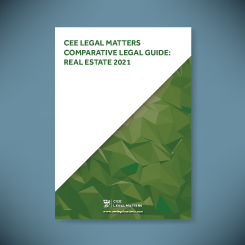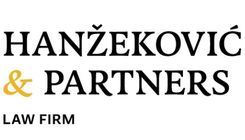Contributed by Hanzekovic & Partners.
1. REAL ESTATE OWNERSHIP
1.1 Legal framework
The Constitution of the Republic of Croatia guarantees the right to property and its inviolability and explicitly prescribes that the right to property is binding and holders of the right to property and their users are obliged to contribute to the common good. The basic act that regulates the right to property in the Republic of Croatia is the Act on Property and Other Real Rights (AP).
Article 30 of the AP defines the right to property as a real right on a particular thing authorizing the holder to use the thing and any benefits arising from it as he sees fit and to exclude any person from it unless it is contrary to such other person's rights or limitations imposed by law.
However, according to the conditions prescribed by law, the right to property may be limited, where the AP distinguishes between general (which implies the duty of the owner to contribute to the common good), special restrictions (sequestration, expropriation), and restrictions based on legal transactions.
In respect to the acquisition of ownership of real property, Art. 48 of the Constitution of the Republic of Croatia prescribes that a foreign person may acquire the right to a property only under the conditions defined by law, which are specified in Art. 356 of the AP.
In particular, foreign natural and legal persons may, under the presumption of reciprocity, acquire property on the territory of the Republic of Croatia on the basis of inheritance, while for other ways of acquiring rights to property by foreign natural and legal persons, presuming reciprocity, it is necessary to obtain the consent of the minister competent for judicial affairs of the Republic of Croatia.
At the same time, the Act on Agricultural Land stipulates that the holders of rights of ownership may not be foreign legal entities and natural persons unless otherwise provided by an international agreement and a special regulation. Exceptionally, foreign legal entities and natural persons may acquire the right of ownership to agricultural land by inheritance provided there is reciprocity.
The expropriation procedure, in addition to the provisions of the AP, is regulated in detail by the Act on Expropriation and Determination of Compensation, which regulates the expropriation system, the manner of determining the interests of the Republic of Croatia in that system, the bodies competent for the implementation of the expropriation procedure, the preliminary actions and the expropriation procedure, the manner of determining compensation for expropriated real property, the manner of determining compensation for real property that is considered expropriated according to a special regulation, and other issues in this regard.
1.2 Registration of ownership
The system of registering real property and rights to it in the Republic of Croatia is based on two registers – the cadastre and the land register. The cadastre is a record that contains data on plots of the earth's surface and buildings that permanently lie on the earth's surface or below it, and on special legal regimes on the earth's surface. Cadastral records are kept by cadastre regional offices of the State Geodetic Administration and the City Office for Cadastre and Geodetic Affairs of the City of Zagreb. Land registers are public registers in which data on the legal status of real property relevant to legal transactions are entered. The land register consists of the main ledger and a collection of documents. Land registers are kept in the land registry departments of the municipal courts. The Land Register Act regulates the organization, arrangement, keeping, and safeguarding of land registers, determines the subject and types of registration, and the management of land registry procedures, while the Act on State Survey and Real Estate Cadastre regulates the issue of state surveys, real estate cadastre, infrastructure cadastre, building register, register of spatial units, register of geographical names, competence over state surveying, real estate cadastre, infrastructure cadastre, register of buildings, register of spatial units, register of geographical names and the performance of these tasks, tasks of the State Geodetic Administration, the storage and use of data, and supervision of activities regulated by this act. In accordance with Croatian legislation, all real property, real rights to them, as well as other facts relevant to the legal real estate transactions are entered in the cadastre and land register.
1.3 Publicity of real estate register
Pursuant to Art. 7 of the Land Register Act, the land register is public and anyone can request access to it, while the data of the real estate cadastre are public unless otherwise provided by the Act on State Survey and Real Estate Cadastre in accordance with Art. 6 of the Act.
1.4 Protection of ownership
Pursuant to Art. 8 of the Land Register Act, extracts, excerpts, and transcripts from the land register are public documents, which means that they prove the truth of what is confirmed or determined in them, and from which aspect we can say that entries in the register are binding. The AP provides for mechanisms for the protection of rights to property, stating in particular that the owner has the right to require the person who possesses his property to hand over his possession of the property to him and that his right does not become time-barred. The types of legal instruments that the act distinguishes when applying the mechanism of protection of rights to property are the true action for recovery of ownership, the action for recovery of ownership by the presumed owner, action for protection against harassment, while the Land Register Act provides for the action for removal and appeal as protection instruments. An owner who claims that someone is using his property without authorization has a true action for recovery of ownership at his disposal, and in proceedings, before a court or another competent body he will have to prove that the thing claimed is his property and is in the possession of the defendant.
2. REAL ESTATE ACQUISTION
2.1 Share deal or asset deal?
The investor can acquire the real property of a certain company in two ways, by acquiring a share in a certain company or on the basis of an agreement on the sale of the company’s assets, which transaction is popularly called asset deal. The main difference lies in the fact that the transaction is better known as the so-called share deal (acquisition of all or part of the shares in the company) implies that the buyer will buy shares i.e. equity shares from the owner of the company. By taking over the shares, the buyer becomes the owner of the legal entity and acquires the company's assets, as well as all its existing and potential liabilities and debts. In this way, the company's contracts with the associated rights and obligations arising from them are taken over. On the other hand, the buyer and the owners of the company can agree that the buyer will take over the property with a part of precisely defined obligations, certain contracts, employees, etc., which is a so-called asset deal. Trends in the real estate market are led by the most important investment financial institutions, i.e. real estate investment funds. Real estate investment funds publicly issue investment units, and the collected capital is further invested in various real estate investment activities. The Investment Funds Act in force in the Republic of Croatia prescribes the possibility of establishing real estate investment funds exclusively in the organizational form of a closed-end fund with a public offering.
2.2 Share deal
The transfer of a share of a certain company to the acquirer in the Republic of Croatia is regulated by the provisions of the Companies Act, namely para. 3 of Article 412 which stipulates that the transfer of a business share requires a contract concluded in the form of a notarial deed (legal transaction document drawn up by a notary public) or a private document confirmed (certified as to its content) by a notary public or a court decision replacing such a contract. Such a contract is also required to assume the obligation to transfer the business share. The lack of a prescribed form of contract assuming the obligation to transfer the business share is eliminated by concluding a contract on the transfer of a business share in the form of a notarial deed or a private document certified by a notary public. No change in the articles of association is required for the transfer of the business share. At the same time, the Companies Act stipulates that the articles of association may set other conditions for the transfer of a business share, in particular, that the consent of the company is required. The business share to which the obligation to perform additional actions is related can be transferred only with the company's consent. Regarding possible risks, all benefits, costs, rights, and obligations arising from existing assets and liabilities (debts) remain with the company and all possible risks associated with the realization of the same, as a rule, are assumed by the buyer. A share deal is a transaction that is not subject to taxation and the seller of the shares (if it is a natural person who owns the shares in question for more than two years) does not have to pay any income or income tax. For example in the case of a share deal where the risks pass to the buyer, it is possible for the buyer to request a longer period for the conduct of due diligence or offer a lower price to include the additional risk compared to the asset deal, or seek additional guarantees from the seller.
2.3 Asset deal
In order to implement an asset deal transaction, there needs to be[MOU1] a valid contract for the purchase of the assets by which the seller's assets, such as real property, equipment, machinery, patents, etc., are transferred to the buyer, where the buyer does not take over shares or equity shares i.e. ownership of the company as a legal entity. The contract includes details such as total fee, payment structure, time, objections, guarantees, etc. By concluding the contract, the buyer acquires a legal basis for the acquisition of the ownership right, while the ownership right to the real property (or other assets) is acquired by registering the acquirer's ownership in the land register (or the corresponding register) on the basis of a duly declared will of the previous owner directed at the transfer of his ownership to the acquirer, in accordance with Art. 119 of the AP. In such a transaction the buyer is exposed to less risk because the possibility of occurrence of adverse events arising from contingent liabilities is minimized because in the case of asset deals, in addition to assets, only certain liabilities are targeted. Comparing the share deal and the asset deal, we can conclude that in the asset deal the buyer potentially bears the cost of real estate transfer tax (3% of the market value), while in the share deal this is not the case. Also, in an asset deal, the seller potentially makes a taxable profit on the difference between the purchase price of the property and the book value in the balance sheet, and if the owner of the seller's company will pay the money received through the payment of the share in the profit from the company he must pay additional tax and surtax. On the other hand, a share deal is a transaction that is not subject to taxation and the seller of the shares (if it is a natural person who owns the shares in question for more than two years) does not have to pay any income or income tax. In the Republic of Croatia, the main risks with asset deal transactions may result from the fact that the process of harmonization of land registers and cadastre may not have been completed, since there are still cadastral municipalities in which cadastre and land register data differ and therefore it is recommended to perform due diligence of the property status.
2.4 Disposal process
See under 2.2. and 2.3. The role of the notary in a share deal is the certification of the contract as to its content. In determining the notary's fee, in accordance with the Ordinance on the temporary notary tariff, while transferring the shares in a company, the value of the transferred share is relevant if it is higher than the compensation, while, if it is lower, it is the value of compensation that is relevant. Certification of a contract as to its content implies its confirmation, i.e. certification of private documents by a notary public during which he/she checks whether the legal transaction contained in the document has been concluded in the prescribed form and explains to the participants the meaning, consequences, and all legal effects of the document, i.e. of the legal transaction contained in the document. In the case of an asset deal, it is necessary to verify the seller's signature with a notary public, for which a notary fee is also paid. The implementation of the contract in question in the land register requires evidence that the acquirer is a Croatian citizen (copies of identity card or passport) as well as evidence that it is a real property that can be acquired by a foreign person. The contract transferring the right of ownership to the real property shall be in written form, while the implementation in the land register requires a certified authenticity of the signature of the alienator of the real property. Proof that the acquirer is a Croatian citizen (copies of an identity card or passport) is required for the implementation of the contract in question in the land register. At the same time, the energy certificate must be attached to the sale-purchase agreement by the seller, otherwise, he could be liable for a misdemeanor.
2.5 Registration of change of ownership
In the case of an asset deal, as stated earlier under 2.3., it is necessary to register the right of ownership to the acquired property if an appropriate register in relation to it is kept. The right of ownership to real properties must be registered with the land registry of the competent municipal court by submitting an application for registration. The amount to be paid as court fees for the submission is set by the Ordinance on Court Fees. Please note that a fee is not payable if the application for registration has been drafted on the basis of a notarial deed or a private document certified as to it content by a notary public, i.e. a private document certified by a judge of the competent court. Furthermore, a court fee is payable for the decision on the application for registration. In the case of a share deal, an application for registration in the court register is submitted to the competent commercial court. A court fee is applicable to both this application as well as its entry, the amount of which is prescribed by the Ordinance of the Court Tariff. When the application is submitted electronically via the e-Tvrtka system, the fee is half of the prescribed amount.
2.6 Risks to be considered
Regarding the right of first refusal, it should be noted that there are two types of right of first refusal – contractual and legal. The legal right of first refusal cannot be excluded, while the contractual one depends on the disposition of the parties. Regarding legal rights of first refusal, the Act on Protection and Preservation of Cultural Heritage stipulates that an owner who intends to sell a cultural property protected by a special decision or a cultural property within a protected cultural-historical entity included on the World Heritage List or the List of the World Heritage in Danger is obliged, prior to its sale, to offer it at the same time to the Republic of Croatia, the county, the City of Zagreb, or the city or municipality in whose territory the cultural property is located, stating the price and other conditions of sale. The priority in exercising the right of first refusal belongs to the city or municipality in relation to the county and the City of Zagreb, and then to the Republic of Croatia. At the same time, Art. 71 of the Forest Act stipulates that agricultural land may not be alienated within 10 years from the date of concluding the sale contract, while, after the expiration of that period, the Republic of Croatia has the right of first refusal of the sold agricultural land at market price. On the other hand, the contractual right of first refusal must be registered in the land register. If the acquirer acted fairly and the right of first refusal was not registered, guided by the principles of trust in the land register, he has the right to legal protection before the competent authorities.
3. REAL ESTATE FINANCING
3.1 Key sources of financing
The key method of financing the purchase of real properties in the Republic of Croatia is concluding a loan agreement with banks, which is regulated primarily by the provisions of the Civil Obligations Act, Article 1021. It defines a loan as an agreement by which the bank undertakes to make available the funds, and the user undertakes to pay the agreed interest to the bank and return the used amount of money on time and in the manner agreed. The loan agreement must be in writing.
3.2 Protection of creditors
The most common collateral instrument contracted in landing operations is the establishment of a voluntary lien, i.e. a mortgage on the real property of the debtor. As a loan security instrument, fiduciary ownership to real property which is the subject matter to the loan agreement may be established, whereby the bank is registered as the owner of the real property, while the user has the right to register as the real property owner only after the payment of the entire amount owed. The borrower is obliged, at his own expense, to ensure the real property on which the lien/mortgage or fiduciary is created for the benefit of the bank. At the same time, a bill of exchange and promissory notes can be used as security instruments, both of which must be signed and confirmed by a notary public.
4. REAL ESTATE TAXES
4.1 Transfer taxes
In the Republic of Croatia, in the case of real estate transactions, in accordance with the Real Estate Transfer Tax Act, a real estate transfer tax is applied. A taxpayer is an acquirer of real property in the Republic of Croatia and the tax base is the market value of the real estate at the time the tax liability arises. The market value of a real property is the price of real property that is or can be achieved in the market at the time the tax liability arises. Real estate transfer tax is paid at a rate of three percent. At the same time, and in accordance with the Income Tax Act, property income tax is paid on the basis of the alienation of real property. Income is considered to be the income that the taxpayer earns from the alienation of real property and property rights, while alienation is considered to be the sale, exchange, and other transfers. Exceptionally, when it comes to the acquisition of real property by a company that is a VAT payer and when it comes to the sale of a real property that has not been moved into within 2 years of construction, the acquirer is not required to pay the real property transfer tax.
4.2 Specific real estate taxes
Please see our answer under 4.1.
5. CONDOMINIUMS
5.1 Legal framework for condominiums
N/A
5.2 Rights and duties of co-owners
N/A
5.3 Liability of co-owners
N/A
5.4 Rights and duties of condominium associations
N/A
6. COMMERCIAL LEASES
6.1 Form and contents of a lease agreement
The provision of Art. 552 of the Civil Obligations Act (COA) prescribes that rental agreements are concluded in writing (the same is prescribed by Art. 5 of the Act on Lease of Apartments), while the form of the lease agreement is regulated by the provision of Art. 4 of the Act on Lease and Sale of Business Premises in such a way that an agreement on the lease of business premises must be drawn up in writing, and when it is concluded by the Republic of Croatia, i.e. a unit of local and regional self-government, as a lessor it also has to be confirmed (certified as to its content) by a notary public. An agreement on the lease of business premises that has been concluded contrary to the above provision is null and void.
A rental agreement, in accordance with Art. 5 of the Act on Lease of Apartments should contain the contracting parties, description of the apartment, amount of rent and method of payment, type of costs to be paid in connection with housing and manner of payment, data on persons who will use the apartment together with the tenant, the duration of the lease, provisions on the maintenance of the apartment, provisions on the use of common areas, common parts and facilities of the building and the land that serves the building, as well as provisions on the handover of the apartment. An agreement on the lease of business premises, in accordance with Art. 5 of the Act on Lease and Sale of Business Premises, should contain the name and surname or company name, address of residence or registered office, the personal identification number of the contracting parties, data for the identification of business premises, the activity to be performed in the premises, provisions on the use of common facilities and premises, the deadline for the handover the premises, the time for which the contract is concluded, the amount of the monthly rent, the assumptions and the manner of changing the lease amount, and the place and time of concluding the contract. The agreement on the lease of business premises concluded contrary to the above provision is null and void. The agreement certified as to its content by a notary public is an enforceable document under legally-determined conditions, and, on the basis of it, due and outstanding amounts of rent may be collected by enforcement.
6.2 Regulation of leases
Depending on the type of property (business or residential premises), a lease agreement or a rental agreement is concluded, which are regulated by different (previously mentioned) legal regulations. The provision of Art. 3.3 of the Act on Lease of Apartments stipulates that the conditions for concluding a contract on the rental of an apartment that are not prescribed by the act in question are freely agreed by the parties, while the provision of Art. 1.5 of the Act on Lease and Sale of Business Premises stipulates that general regulations of the law on obligations on lease apply to leases that are not regulated by this act. In terms of provisions that cannot be excluded by the agreement, please note that Art. 6 of the Act on Lease and Sale of Business Premises stipulates that business premises owned by the Republic of Croatia, local and regional self-government units, and legal entities owned or predominantly owned by them are leased by public tender and this can be exceptionally excluded by the agreement.
6.3 Registration of leases
Pursuant to the Act on Lease and Sale of Business Premises, when the lease agreement is not notarized or when the lease agreement has not been confirmed (certified as to its content) by a notary public, the lessor is obliged to submit a copy of the lease agreement to the competent tax administration.
6.4 Termination of leases and renewals
Pursuant to the provisions of the COA, a rental agreement, the duration of which is neither determined nor can be determined from circumstances or local customs, is terminated by a notice that each party may give to the other in compliance with a certain notice period.
Additionally, the tenant can terminate the agreement if:
- the rented asset is in such a condition that its use presents a health threat, irrespective of the fact whether they were aware of such a condition at the time of entering into the contract; or
- due to the alienation of the rented asset, the rights and obligations of the landlord are transferred to the acquirer.
On the other hand, the landlord can terminate the agreement if:
- the tenant defaults on two consecutive rent payments or a significant portion thereof; or
- the tenant continues, even after being warned by the landlord not to do so, to use the asset contrary to the contract or its intended use, neglects its maintenance, and causes damages to the asset, particularly where the asset is given to a third party to use of.
The Act on Lease of Apartments in the provision of Art. 19 explicitly stipulates that the landlord may terminate the rental agreement if the tenant or other occupants of the apartment use the apartment contrary to the act and the rental agreement and lists cases that involve such use of the apartment, such as if the tenant does not pay rent and other contracted costs related to housing within the agreed period, if the tenant sublets the apartment or part of the apartment, if the apartment is used by a person not specified in the rental agreement, namely for more than 30 days without the permission of the landlord, or if the tenant or other users of the apartment do not use the apartment for housing.
With regard to the automatic renewal of an agreement, a fixed-term rental agreement shall be deemed to be tacitly renewed for the same duration if neither party notifies the other party in writing, at least thirty days before the expiration of the stipulated time, that it does not intend to enter into a fixed-term contract for a further period. With regard to a fixed-term contract, if, after the expiry of the term stipulated in the contract, the tenant continues to use the asset and the landlord does not object, the duration of the contract shall be deemed to be extended indefinitely under the same conditions.
A lease agreement whose duration is neither determined nor can be determined from circumstances or local customs may be terminated by cancellation by either party in accordance with the stipulated period of notice.
Pursuant to the provisions of the COA, a lease agreement may be terminated by the lessor:
- if the leased asset has been sublet without their permission where that is required by law or contract;
- if the lessee fails to pay the rent within 15 days from the date when they were invited by the lessor to make the payment; or
- If the lessee continues, even after being warned by the lessor, to use the asset in a manner which is in contravention of the contract or the asset’s intended purpose, or neglects its maintenance and there is a threat that serious damage might be inflicted on the lessor.
Pursuant to the provisions of the COA, the lease agreement may be terminated by the lessee:
- due to alienation of the leased asset, in which case the rights and obligations of the lessor are transferred to the acquirer; or
- if the leased asset poses a health threat, even if the lessee was aware of that at the moment of entering into the contract.
Furthermore, in addition to the above reasons for termination of the contract by the lessor, the Act on Lease and Sale of Business Premises stipulates that the lessor may terminate the lease at any time, regardless of contractual or legal provisions on the duration of the lease if the lessor, for reasons for which they are not responsible, cannot use the business premises in which they performed their activity, and therefore intends to use the premises held by the lessee, while the lessee may terminate the lease agreement for business premises at any time, regardless of contractual or legal provisions on the duration of the lease, if the lessor does not bring the business premises in a condition in which they are obliged to hand them over, i.e. maintain them, within a reasonable period of time left by the lessee.
In addition, Article 28 The Act on Lease and Sale of Business Premises prescribes the right of each contracting party to terminate the agreement on lease of business premises concluded for a definite or indefinite period of time if the other contracting party fails to fulfill its obligations under the agreement or this act.
6.5 Rent regulations and rent reviews
Please see our answers under 6.1 and 6.4
6.6 Services to be provided together with the lease
N/A
6.7 Fit-out works and their regulation
Regarding the tax implications on the lessee's investments, please note that they are not envisaged by legal provisions. In respect to legal implications regarding the investment of the lessee, please also note that Art. 11 of the Law on Lease and Sale of Business Premises stipulates that the lessee is obliged to notify the lessor in writing without delay if during the lease there is a need for repairs necessary for the maintenance of the premises. If the lessee has made the repairs themselves and has not previously notified the lessor in writing of the need for repairs and left them a reasonable period, they are not entitled to compensation for the work performed and are liable to the lessor for the damage suffered due to this omission, except in the case of urgent repairs.
6.8 Transfer of leases and leased assets
The transfer of the lease agreement is regulated by the Civil Obligations Act. The acquirer of the leased property takes the place of the lessor and the rights and obligations arising from the lease arise between the acquirer and the lessee. The acquirer may not request the lessee to hand over the property to them before the expiration of the time for which the lease was contracted, and if the duration of the lease is not defined by contract or law, then before the expiry of the notice period.
Furthermore, Art. 543 stipulates that when a property on which a lease contract has been concluded is handed over to the acquirer and not to the lessee, the acquirer takes the place of the lessor and assumes their obligations to the lessee if at the time of concluding the alienation contract they knew of the lease agreement.
On the other hand, the acquirer who at the time of concluding the alienation contract was not aware of the existence of the lease agreement is not obliged to hand over the property to the lessee, and the lessee can only claim damages from the lessor. As far as the transfer of property is concerned, our legislation recognizes the transfer of property in the process of restitution of property, which is regulated by the provisions of the Act on Compensation for Property Confiscated during the Yugoslav Communist Rule.
Article 41 stipulates that the owner (person to whom the space is returned to ownership in the process of restitution), may not request the vacating and handing over of the business premises before the expiry of one year (counting from the day the decision on determining the ownership right becomes final) if the agreement on lease of business premises is concluded for an indefinite period.
On the other hand, if the lease agreement is concluded for a definite period of time, the owner cannot request the vacation and handing over of the business premises before the expiry of the agreed term, and no later than within five years from the day the decision on determining the ownership right becomes final.






